#islamic golden age
Explore tagged Tumblr posts
Text
The most important thing to understand about what is often now called the “Translation Movement” is that it wasn’t primarily about translation. It was part of a wider commitment by Islamic scholars and political leaders to scientific investigation that also saw caliphs commission new works of science, geography, poetry, history, and medicine. It is well-known that classic works of Greek science and philosophy were translated into Arabic before they were translated into other European languages—including Latin. What is less well-known is that the point of translating foreign works was not to preserve them but to build on them. As links around the Mediterranean continued to increase, that Arabic scholarship began to reach western Europe, and to change the way people there thought.
295 notes
·
View notes
Text

I quite literally mentioned in the original post that these advancements were made in a time and place that is known as the Islamic Golden Age
also known as the Golden Age of Islamic Discovery, the Golden Age of Islamic Academia, and the Golden Age of Islamic Science
because it was a time of study and discovery where Islamic scholars were making massive advancements in many fields of academia
we're not "taking these examples and making them about religion". the people who made these advancements were making them as part of a search for knowledge that was being driven by the importance of learning and discovery in Islam specifically
I'm not taking something tangentially related and making it about my religion. I am talking about something that is a part of the history of my religion. This didn't just happen to take place in an Islamic culture, it happened because of Islamic culture in an era that is extremely important to our history
and while it is very true and part of the reason I made the original post that these scholars have been overlooked because of their race, they have also been overlooked because of their religion, and because of the fact that their religion was a driving force behind all of the things that they accomplished (also some of them were European Muslims, though that feels beside the point)
Islamophobia would have people believe that Muslims are regressive and backwards, which makes it extremely important to discuss these achievements as the achievements of Muslim people
I don't know how else to explain that the topic of the Golden Age of Islam is already about religion.
and the whole thing about not looking at european advancements and saying "I'm proud to be christian" is frankly an unfair comparison. Muslims are a highly persecuted group, not only do we have every right to look at these achievements and say we are proud to be Muslim, it is important that we are able to do so in a society that does not want us to be proud of our religion
please at least skim the wikipedia page:
was talking to my mom about how white people ignore the contributions of poc to academia and I found myself saying the words "I bet those idiots think Louis Pasteur was the first to discover germ theory"
which admittedly sounded pretentious as fuck but I'm just so angry that so few people know about the academic advancements during the golden age of Islam.
Islamic doctors were washing their hands and equipment when Europeans were still shoving dirty ass hands into bullet wounds. ancient Indians were describing tiny organisms worsening illness that could travel from person to person before Greece and Rome even started theorizing that some illnesses could be transmitted
also, not related to germ theory, but during the golden age of Islam, they developed an early version of surgery on the cornea. as in the fucking eye. and they were successful
and what have white people contributed exactly?
please go research the golden age of Islamic academia. so many of us wouldn't be alive today if not for their discoveries
people ask sometimes how I can be proud to be Muslim. this is just one of many reasons
some sources to get you started:
but keep in mind, it wasn't just science and medicine! we contributed to literature and philosophy and mathematics and political theory and more!
maybe show us some damn respect
#very strange thing to say!#im not trying to tell you off or whatever#i just hope you understand that Islam is extremely relevant to this topic#mine#islam#islamophobia#islamic golden age#golden age of islam
13K notes
·
View notes
Text
You’re islamophobic because you’re ignorant
I’m islamophobic because they made significant advances in mathematics and math makes my head go ouch
We are not the same
#196#196 campfire#shitpost#I’m stupid#mathematics#islam#islamic golden age#I’ll never forgive the abbasids#rule#ruleposting
162 notes
·
View notes
Text
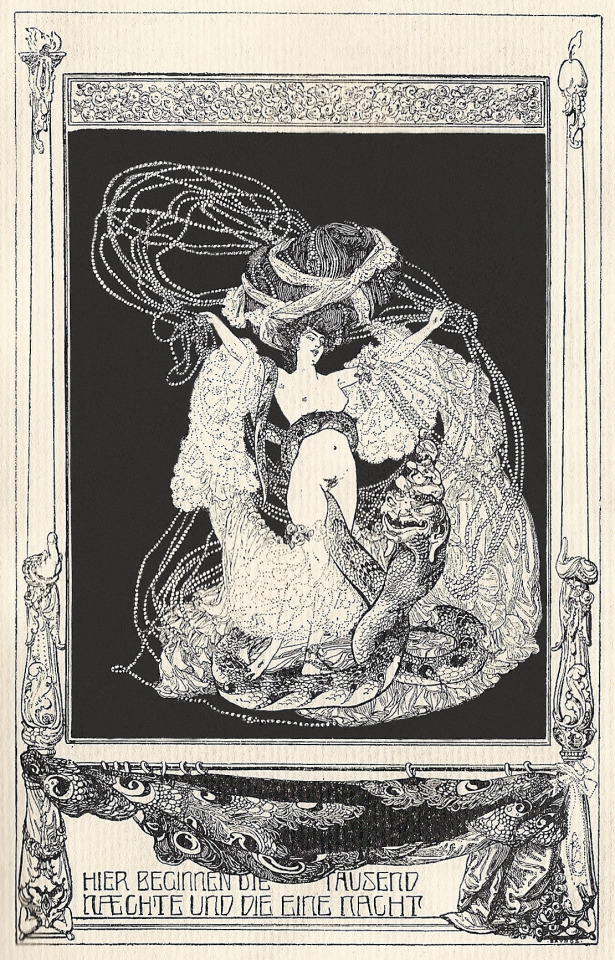
Franz von Bayros (1886-1924), ''Das Buch der Tausend Nächte und der einen Nacht'' (The Book of the Thousand Nights and a Night), Bd. 1, 1906. Source
#franz von bayros#austrian artists#Islamic Golden Age#art nouveau#One Thousand and One Nights#vintage illustration#vintage art
425 notes
·
View notes
Text
So I might’ve actually lectured my lecturer. He’s an archivist, but not a historian (in the broadest version of the word).
Previously mentioned: Roman archives, didn’t really survive because of wax tablets and papyri decaying but we know they wrote and archived. Sure.
After the disappearance of the Western Roman Empire (he was very safe with his word choices here), archiving or writing large amounts of texts wasn’t really a thing, until the Arabs came by the 12th century and Europe was archiving again.
HOLD THE FFING PHONE RIGHT THERE! And I did ask why he was reasoning this way. He didn’t really got me immediately so I provided him with examples.
Roman law didn’t disappear, it was held up and added upon. (Fine = income!) we know this because A) we have catholic additions on it making pagan elements in society illegal, B) we have written versions of the Lex Salica as old as the 8th century, C) Carolingian Minuskel is a thing, learned how to read it at previous Uni.
They just continued copying/translating Greek to Latin to f.e. Diets.
Laws are only useful when you have an institute that has them, can check on them and execute them. All those laws are stored somewhere (= archived).
Handy for cloisters to know how many properties they have and what they provide in income and how much they cost.
Roman law became regional, the Goths, Salic Franks, Anglians all had written law. The Catholic Church even invited Irish monks over to baptize Europeans and they introduced the space in written language in the process to make it easier for them. Writing… archiving…
The Catholic Church was very keen on making martyrs immediate saints. Their stories were recorded (!) into hagiographies. We still have those. They were kept (archived!) in churches and cloisters.
They like their heroes. Tales like Beowulf are 8th century. The church wrote their hymns down so they could hand it out to their singers. The church provided education. The male elite could write…
Gregorius of Tours wrote his Historia Francorum. He wrote the history of the Francs, while they were still around! That’s archiving!
Yeah sure, they wrote how the Vikings were invaders and so on and on. But they wrote it down in the cloister archives!
I mean I can continue. But these were the things I mentioned in class.
To clarify, the Arabs did not re-introduce the production of archiving material and archives themself. They were just never gone. What the Arabs did do was re-introduced science! (Scream it out loud for the people in the back!). While Charlemagne was busy killing Slavs, the Arabs had libraries (Baghdad House of Wisdom) and research institutes and were good mathematicians and astronomers (many stars in our night sky have Arab names to this day). Europe owes a ton of stuff thanks to the Islamic Golden Age. But not really recording and archiving.
On the other hand, I was later informed that the lecturer started panicking because i apparently cornered him good. I just took the one time I get to prove that the last five years of me working around the Early Middle Ages wasn’t for nothing. I don’t want to apologise
#archaeology#history#field archaeologist#geology#archaeologist#anthropology#art#baghad house of wisdom#house of wisdom#Baghdad#islamic golden age#Charlemagne#merovingian#frankish history#Salic franks#goths#Gregory of Tours#hagiography
53 notes
·
View notes
Text
I miss her (the Baghdad House of Wisdom)
#i just thought about all the ancient poetry we could have had and got sad#*shakes fist at sky* MONGOLS!!!#islamic golden age#Baghdad House of Wisdom#history
11 notes
·
View notes
Text

The Hijab did not originate from Islam nor are they oppressive when women have the freedom to choose when they wear one.
🧕🏼☪️🧕🏾
#history#hijab#islam#mesopotamia#veil#middle eastern history#ancient#medieval#islamic golden age#clothing#womens history#fashion#femininity#traditional clothing#muslim women#islamic practice#religion#middle east#soft girl#hijab fashion#islamic history#assyrian#traditional femininity#sumerian#womenswear#fashion history#nickys facts
42 notes
·
View notes
Text
Arab science arguably informed the European fencing theory of the early fourteenth century, we may in part have the mathematical progress of the Islamic golden age to thank for the beginnings of the medieval traditions of geometric fencing. It would take me a long ass post to fully explain it but I highly recommend looking into geometry and stuff in high and late medieval (circa 1260-1340) fencing and sword design if it at all interests you
12 notes
·
View notes
Text
The House of Wisdom
I know people get annoyed about the destruction of the Library of Alexandria, but I think they should also be upset about what the Mongols did to the House of Wisdom.
Founded in the late 8th century, also known as the Islamic Golden Age, the House of Wisdom was a public library, observatory and academy located in what is now Baghdad, Iraq. There were rare books and Arabic poems, and plenty of translations of texts from Arabic, Syriac, Chinese, Sanskrit and Greek. Research was conducted and scholars had access to information from India, Greece and Persia. Scholars could study astronomy, maths, medicine, science and philosophy. Some of the astronomers worked on improving the astrolabe, which was used by Muslims to find Mecca and could also help travellers plan their journeys.
The House of Wisdom was in Baghdad, which at the time was the capital of the Abbasid Caliphate. This meant that plenty of people, including scholars, would visit the city. Some notable examples are al-Jahiz (who lived to be 89, and apparently died when a stack of books fell on him); al-Kindi (the father of Arab philosophy) and al-Ghazali (a Mujaddid who wrote "The Incoherence of Philosphers"). al-Jahiz taught at the university and wrote there. In one of his books he discusses evolution and argued that dogs, wolves, foxes etc probably shared a common ancestor with four legs and a tail. One scholar, al-Ma-mun, put together the most detailed map of the Earth (for its time - it looks like North Africa, Europe and parts of Asia to me. https://www.pinterest.co.uk/pin/486177722268804983/ ).
The Mongols destroyed the House of Wisdom in 1258 when they sieged the city. Hulegn, the grandson of Ghengis Khan, attacked the city and destroyed hospitals, mosques and libraries. The attackers threw all of the books into the Tigris river. Legend says that for days afterwards the river water was turned black with ink and red with blood.
#the house of wisdom#the library of alexandria#baghdad#iraq#islamic golden age#mongol invasion#ghengis khan#hulegn#al-jahiz#al-kindi#al-ghazali#islamic scholars#muslim scholars#history
11 notes
·
View notes
Text
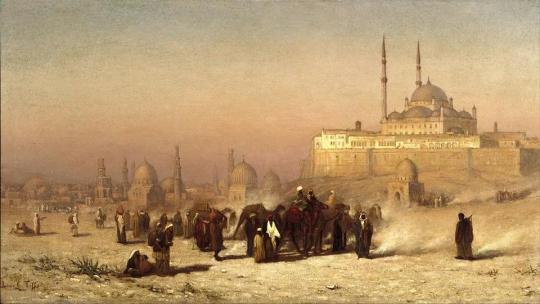
Me omw to Timbuktu to become a learned scholar
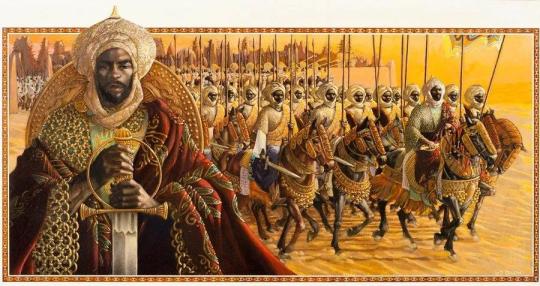
Goin on Hajj, might disrupt some local economies with gold

ALCHEMY TIME 💯💯
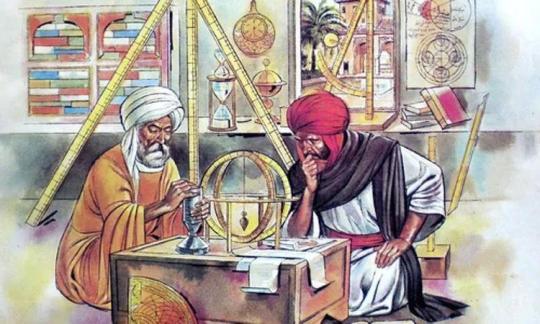
STUDYING MATHEMATICS 🗣️🗣️
51 notes
·
View notes
Text
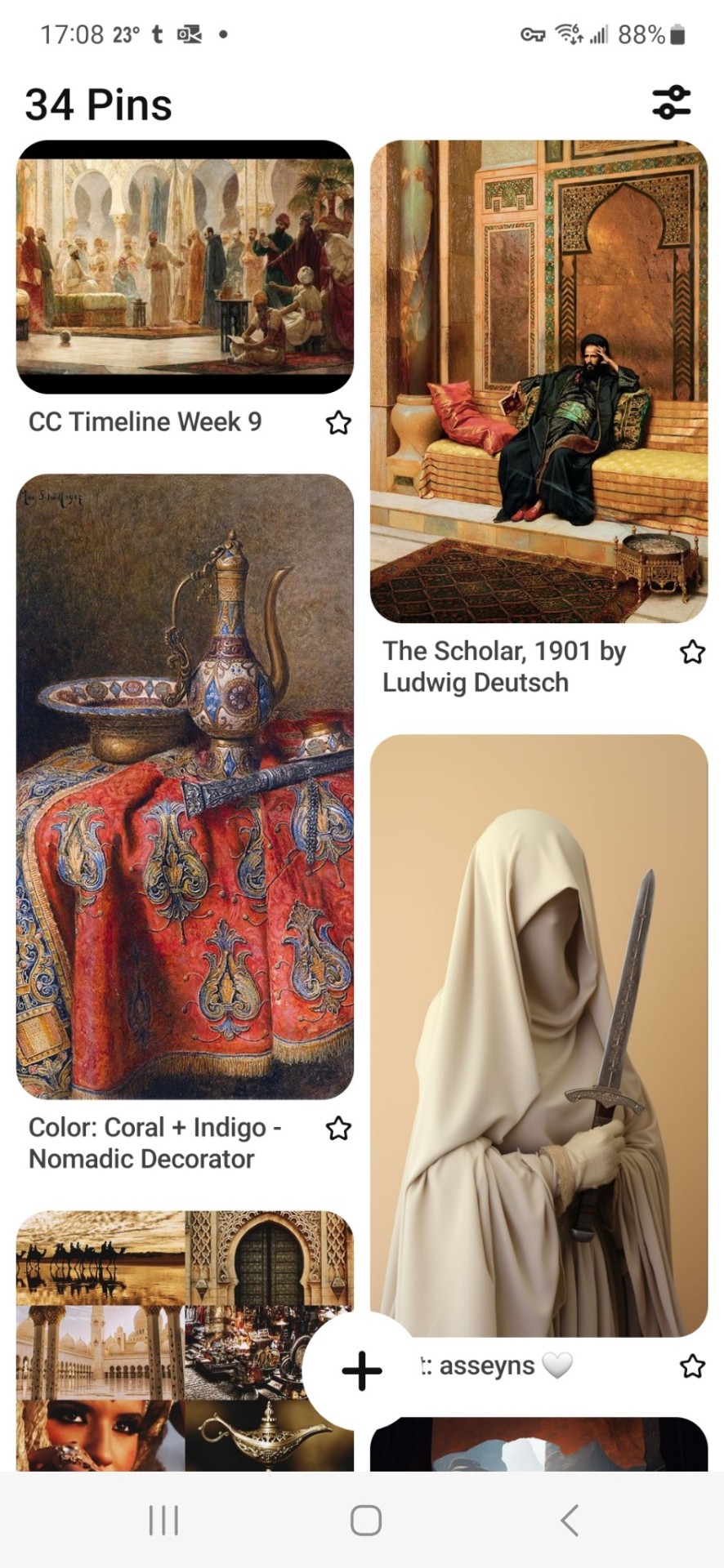
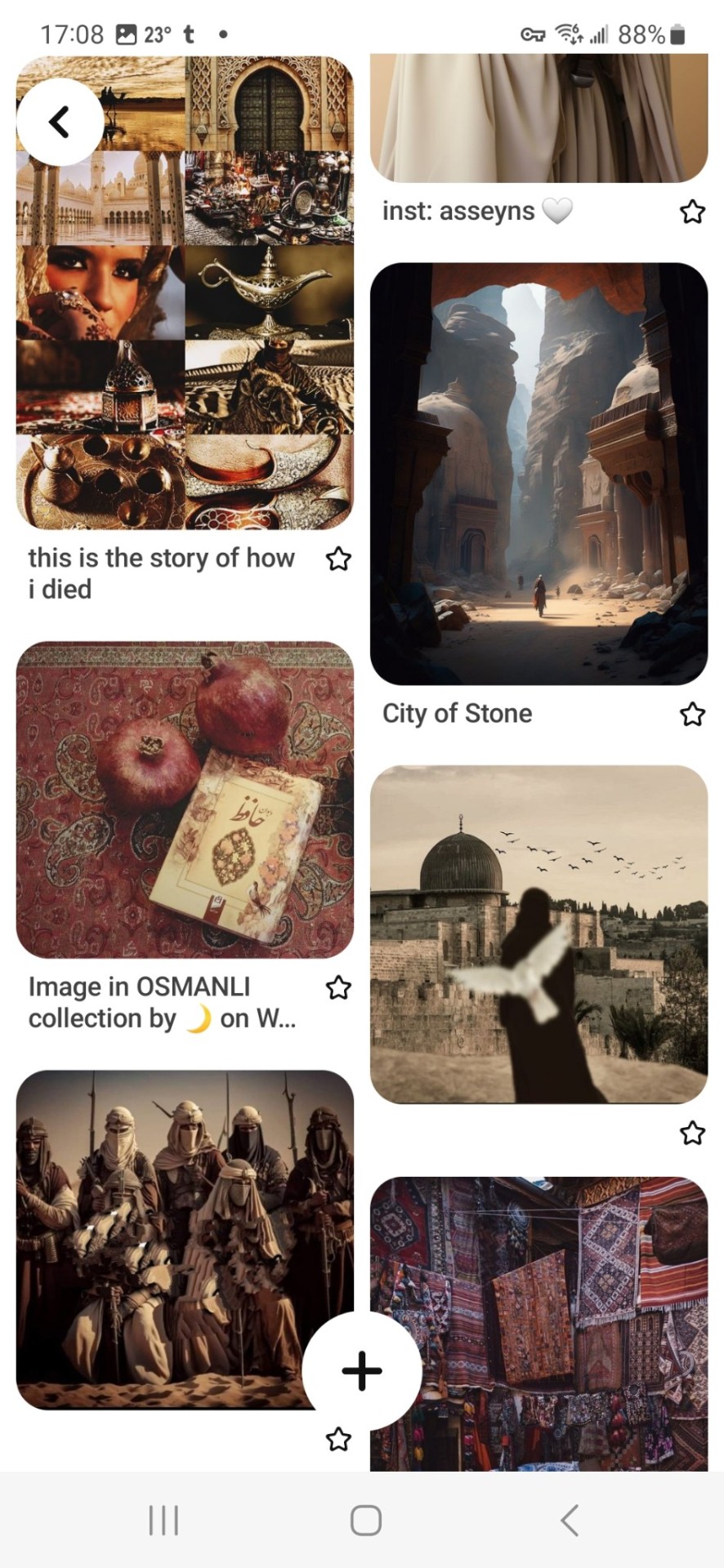
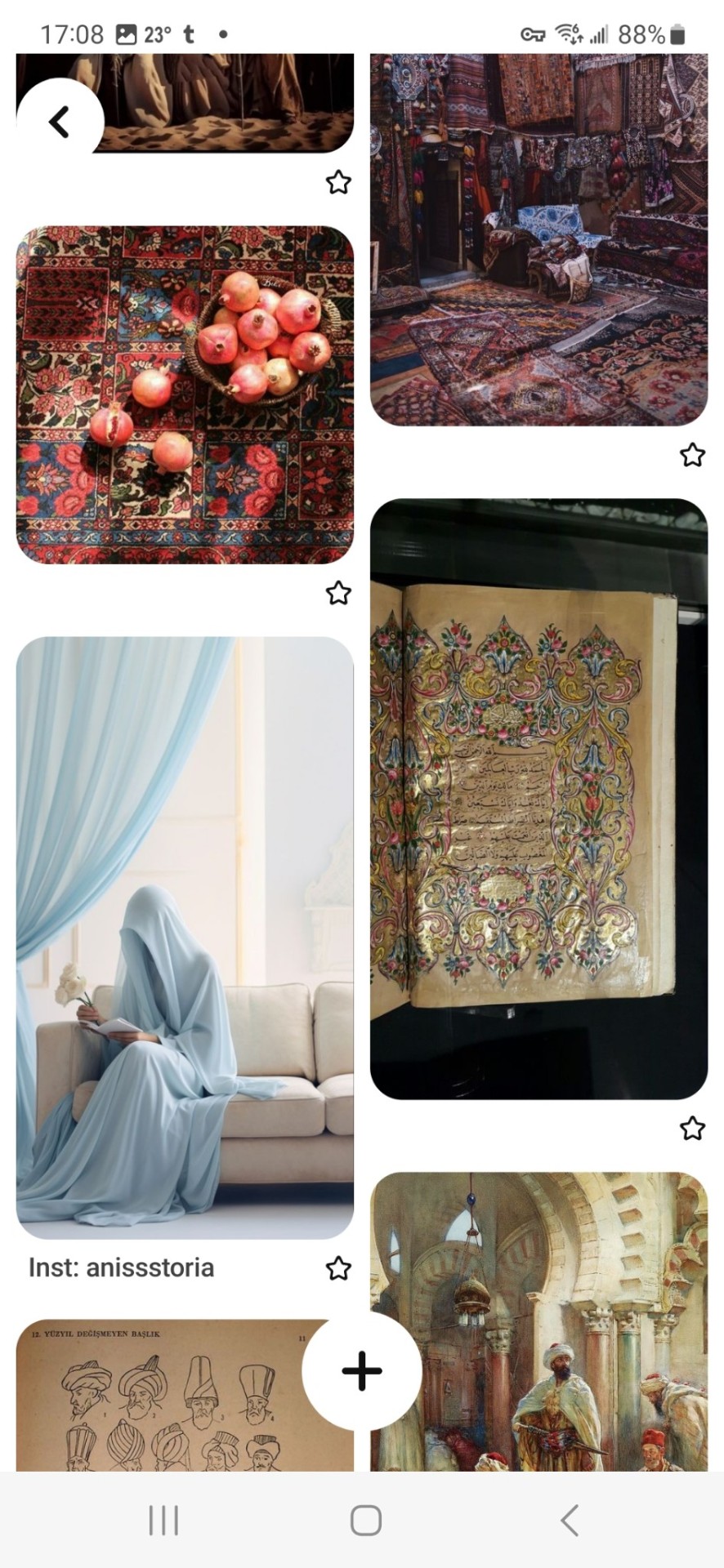
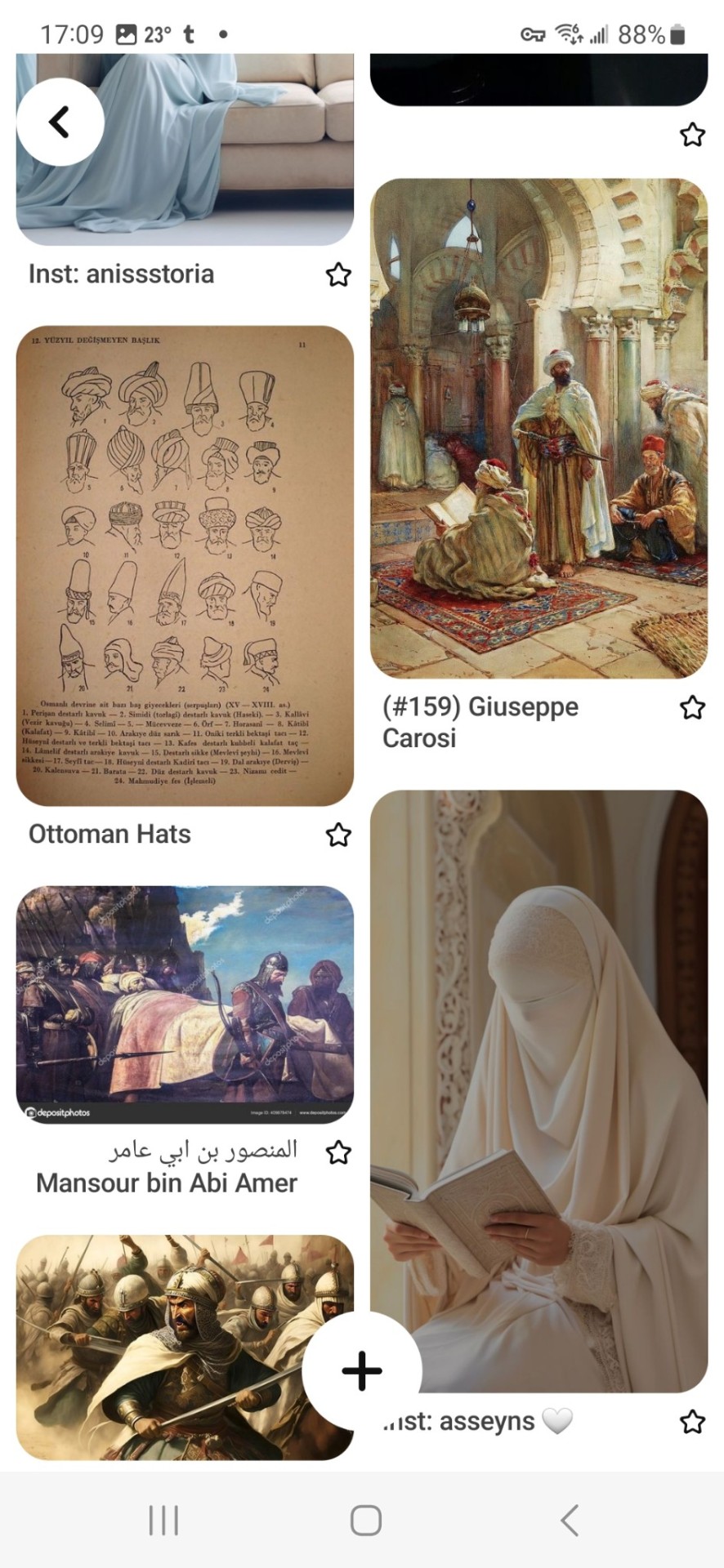

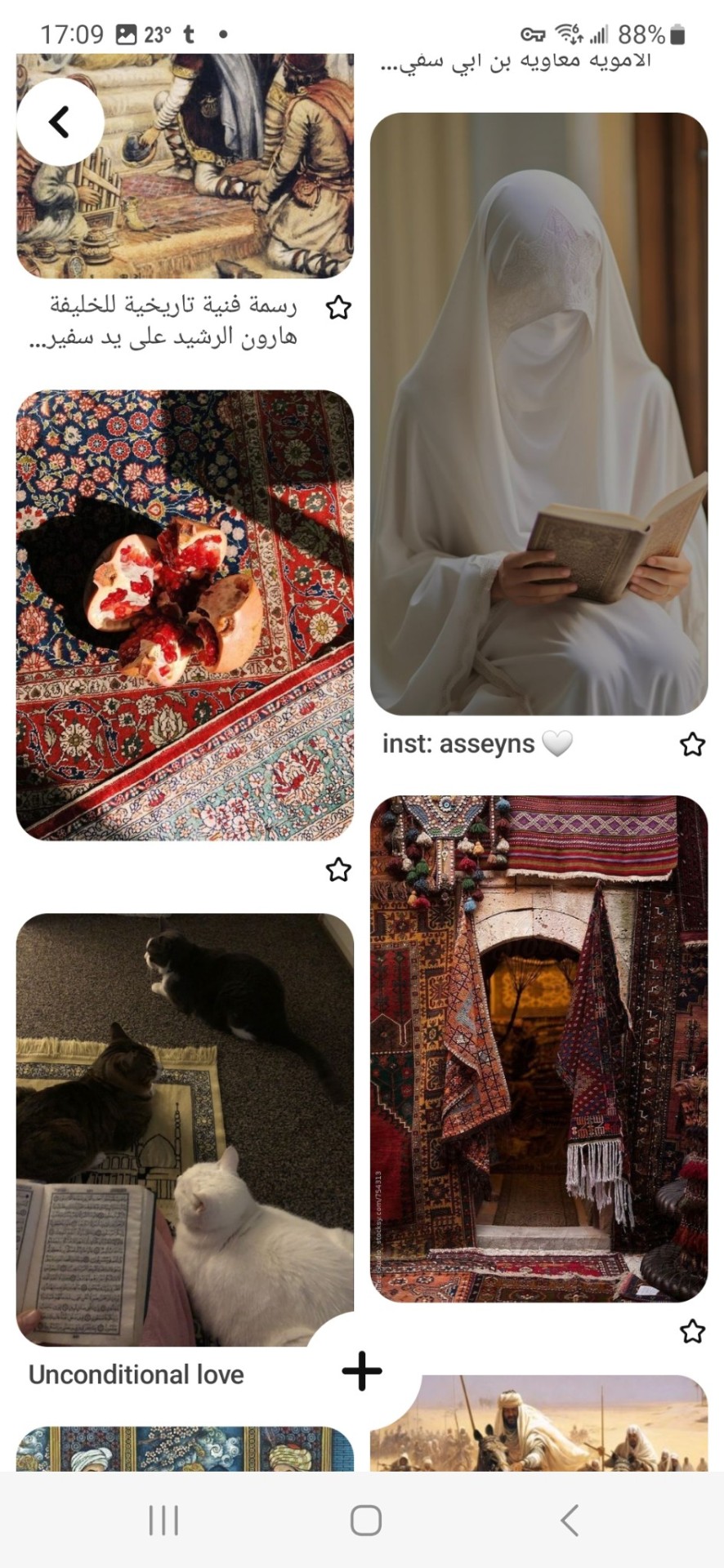

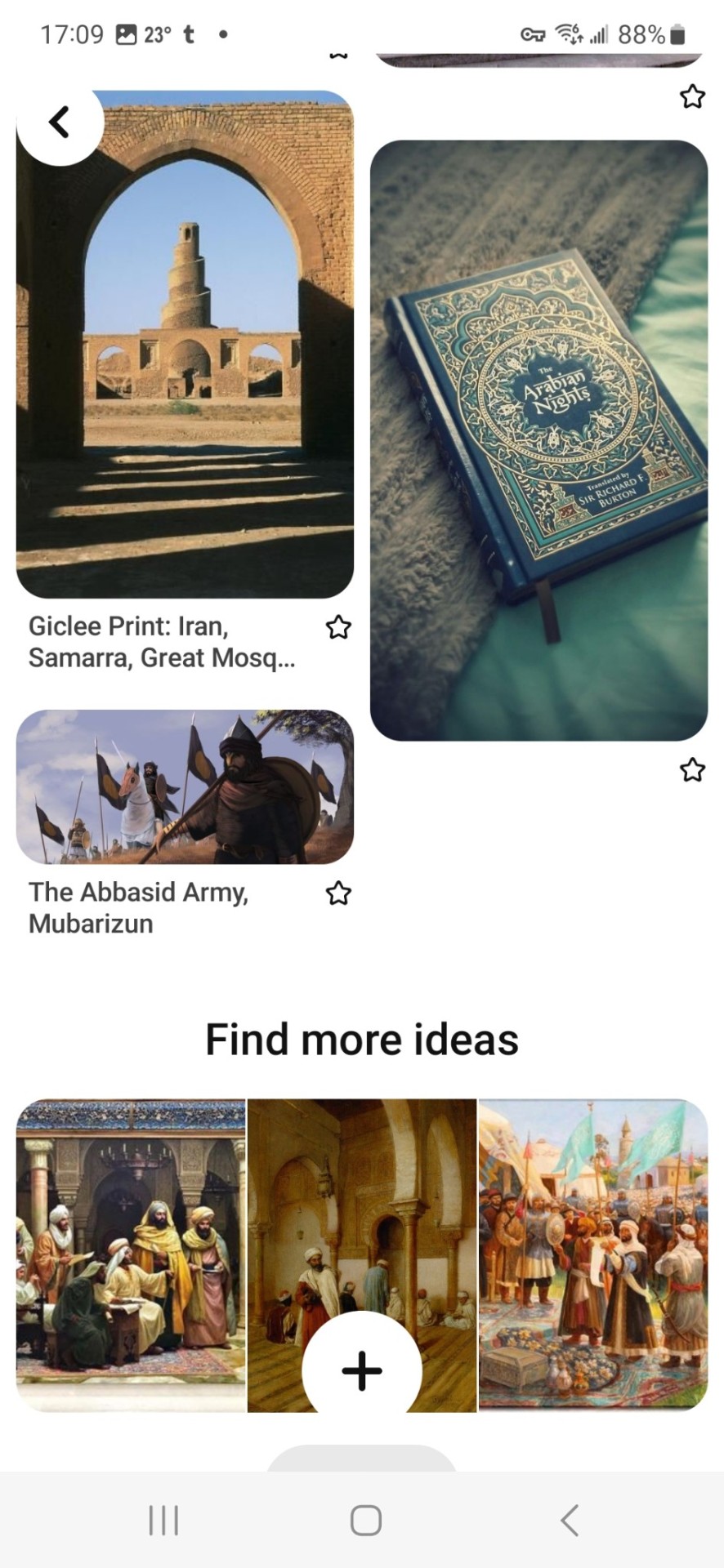
A moodboard I did of Disney's Scheherazade ideas
🤩🤩🤩🥺🥺
#abbasid caliphate#islamic golden age#disney Scheherazade ideas#like i just think that'll be a cool disney aladdin prequel#since jasmine is a descendant of Scheherazade in disney#scheherazade#shahryar#harun al rashid#zubaidah bint jafar#1001 nights#persia#iran
10 notes
·
View notes
Text
youtube
PHILOSOPHICAL SIDE QUEST
Al-Ghazali’s Spiritual Crisis
Abū Ḥāmid Muḥammad ibn Muḥammad al-Ṭūsiyy al-Ghazali, better known to posterity of Al-Ghazali, fits neatly between Avicenna, who died before he was born, and Averroes, who was born after he died, but al-Ghazali made a point of criticizing the use that Avicenna (and later Averroes) made of Greek philosophy. Al-Ghazali experienced a spiritual crisis as a result of being appointed to an influential position, and his response became a a touchstone of renewal in the Islamic world. His philosophical writings became a major influence in both Christian and Islamic civilization.
Quora: https://philosophyofhistory.quora.com/
Discord: https://discord.gg/r3dudQvGxD
Links: https://jnnielsen.carrd.co/
Newsletter: http://eepurl.com/dMh0_-/
Text post: https://geopolicraticus.substack.com/p/al-ghazalis-spiritual-crisis
Video: https://youtu.be/edLqmRE8gWY
Podcast: https://spotifyanchor-web.app.link/e/v54kJbjemKb
#philosophy of history#youtube#al-Ghazali#Islamic Golden Age#Islamic philosophy#Robert Redfield#great tradition#Oswald Spengler#warfare thesis#Youtube
3 notes
·
View notes
Text
The House of Wisdom: How the Arabs Transformed Western Civilization
This book explores the intellectual and cultural achievements of the Islamic Golden Age. It uncovers the often overlooked contributions of Arab and Muslim scholars, scientists, and thinkers from the 8th to the 14th centuries, highlighting their profound impact on Western civilization. In the eighth century, an Abassid caliph established Baitul Hikmah (i.e., House of Wisdom) in Baghdad. The…

View On WordPress
#ISBN: 9781608190584#Islam history#islamic civilzation#islamic golden age#Jonathan Lyons#muslim history
4 notes
·
View notes
Text
You are offered 10 Million Dollars to go back in time, live for 10 consecutive years and record your findings. Where/when do you go and why?
Here are the rules:
You are offered to go back in time to any year of the holocene era and you must remain there for 10 consecutive years.
You will be outfitted with video recording devices that can't be detected and record what you see.
You will be innoculated against any potential diseases.
You will be trained in the dominant language of wherever you go prior to your departure.
You will start with enough money to get yourself a modest dwelling.
You cannot alter history, reveal yourself, or produce any children, inventions, art pieces, etc.
You must blend in and you will develop a backstory with historical experts before you go.
You can die/be killed during the duration of the job.
Upon your return you will be awarded $10 Million but 10 years will have passed in the present day meaning your loved ones may have died or moved on to other relationships.
Do you do it? If so where and when do you go?
#history#historians#archeology#art history#ancient history#african history#european history#asian history#polynesian history#oceanian history#south american history#ancient persia#ancient india#ancient greece#ancient china#rennaissance#medeival#sengoku jidai#islamic golden age#ancient rome#ancient celts#norse#ancient egypt#great zimbabwe#19th century#18th century#17th century#16th century
3 notes
·
View notes
Text
wishing everyone Eid ul Adha to you and your family..May Allah SWT accept our Efforts we took towards Allah SWT
#dhul hijjah#hanif abdurraqib#mosques#islamic golden age#muslimquotes#muslim community#revert#bukhara#quranandsunnah#islamic architecture
4 notes
·
View notes
Text

Top Islamic Medieval Scholars be like:
“Lesbians exist because their hot”
🏳️🌈☪️🏳️🌈
#history#lesbian#islamic golden age#medieval#science#lgbt history#islamic world#masawayh#al kindi#middle ages#womens history#wlw#middle east#girl math#trans lesbian#lgbt community#femme lesbian#lesbian history#butch lesbians#historical figures#girl who likes girls#lgbtq#girly things#islamic history#medieval middle east#nickys facts
24 notes
·
View notes